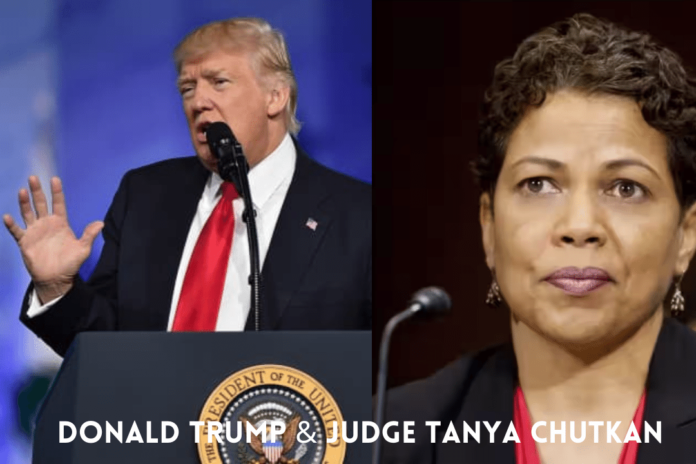In a significant legal milestone, a federal court has issued a gag order to former President Donald Trump, preventing him from speaking out in the media about the federal investigation into his alleged attempts to rig the 2020 election.
What is gag order?
Trump’s remarks toward court employees, potential witnesses, and the special counsel and his team are prohibited by the gag order. However, it does not impose limitations on insulting remarks directed against the Justice Department or Washington, D.C. in general. The order’s author, Judge Tanya Chutkan, highlighted that the ban relates to words that could jeopardize the fair administration of justice.
Chutkan emphasized that any infraction of the order could result in punishment and that Trump’s presidential candidacy does not give him the right to disparage public employees who are merely carrying out their responsibilities.
This gag order is necessary as a result of Trump’s past remarks criticizing the judge presiding over the election subversion case, witnesses, and even prosecutors. Special counsel Jack Smith’s office prosecutors contend that these remarks are sufficient justification to impose restrictions on Trump’s ability to speak publicly about the issue.
Trump is a criminal defendant charged with four felonies, and the court emphasized this to Trump and his defense team. He is also subject to the terms of his release. Trump’s legal team disagreed with the proposed injunction, claiming that it violates his First Amendment rights and that the Biden administration and the Justice Department are using it to restrict his freedom to campaign.
Trump’s criticisms have included referring to Judge Chutkan as a biased, Trump-Hating Judge and labelling Smith deranged and a thug, in addition to focusing on specific members of Smith’s staff. Chutkan emphasized that using such rhetoric while a criminal defendant is unacceptable, and that Trump does not have unrestricted free speech rights simply because he is engaged in political campaigning.
The gag order didn’t seem to bother Trump’s legal team much while the case was being heard, but they later voiced their concerns. Following the hearing, they stayed silent on the subject.
Trump’s public posts criticizing Smith’s office worried Judge Chutkan, who described Trump’s rhetoric as “highly charged” and exceeding the limits of what a criminal defendant can say in public on their legal case. She also emphasized that Smith and his team might come under attack as a result of these posts.

Chutkan questioned Trump’s attorneys as to why he should not be prohibited from criticizing prosecutors in public during his case and used the example of Trump calling Smith a “thug,” equating it to the idiom “Will no one rid me of this meddlesome priest.”
Trump’s counsel said that Trump’s use of strong language was appropriate because Trump thinks the proceedings are politically motivated. Chutkan nevertheless reminded him that Trump is bound by court-imposed limitations on what he may publicly say about anyone associated with the case because he is a criminal defendant.
Chutkan reprimanded Trump’s attorney at the hearing for bringing politics into her courtroom, underlining that politics stops at this courtroom door.
The prosecution insisted that the purpose of the gag order is to protect trial participants and witnesses from potential intimidation, not to stop Trump from running for office. They made it clear that the limitations only apply to those participating in the case and communications meant to sway the jury pool or the trial’s location.
Chutkan reiterated that the trial’s initial March date would not be altered, saying, This trial will not yield to the election cycle, and we will not revisit the trial date.
Trump’s criticisms on potential witnesses like former Vice President Mike Pence and former Attorney General Bill Barr have been brought up by the prosecutors, who are worried that they may encourage his supporters to intimidate witnesses.
Read More: About Steve Scalise
In a previous visit in Chutkan’s courtroom, the judge had cautioned Trump against using “inflammatory” language while the case was being heard, underlining that legal proceedings are not comparable to elections and promising to take the necessary precautions to protect the fairness of the proceedings.
Even modest restrictions placed on Trump’s speech may be appealed in this case. According to Trump’s legal team, the federal charges against him are being moved up quickly in order to obtain a conviction before the 2017 election.
As a result of Trump’s attacks on a member of the court staff, a New York judge recently ordered another gag order in a civil fraud trial against him. The judge specifically prohibited all parties from disparaging court employees in public and issued a stern warning in the event that this rule was broken.
The gag order placed on former President Donald Trump is meant to prevent him from publicly discussing the federal investigation into his alleged attempts to rig the 2020 election. Although the order limits his ability to target specific parties to the case, it does not restrict his capacity to run for office or express his opinions in a way that complies with court requirements.
While acknowledging the political background of the case, the judge’s ruling underlines the necessity of upholding the integrity of the legal process.





